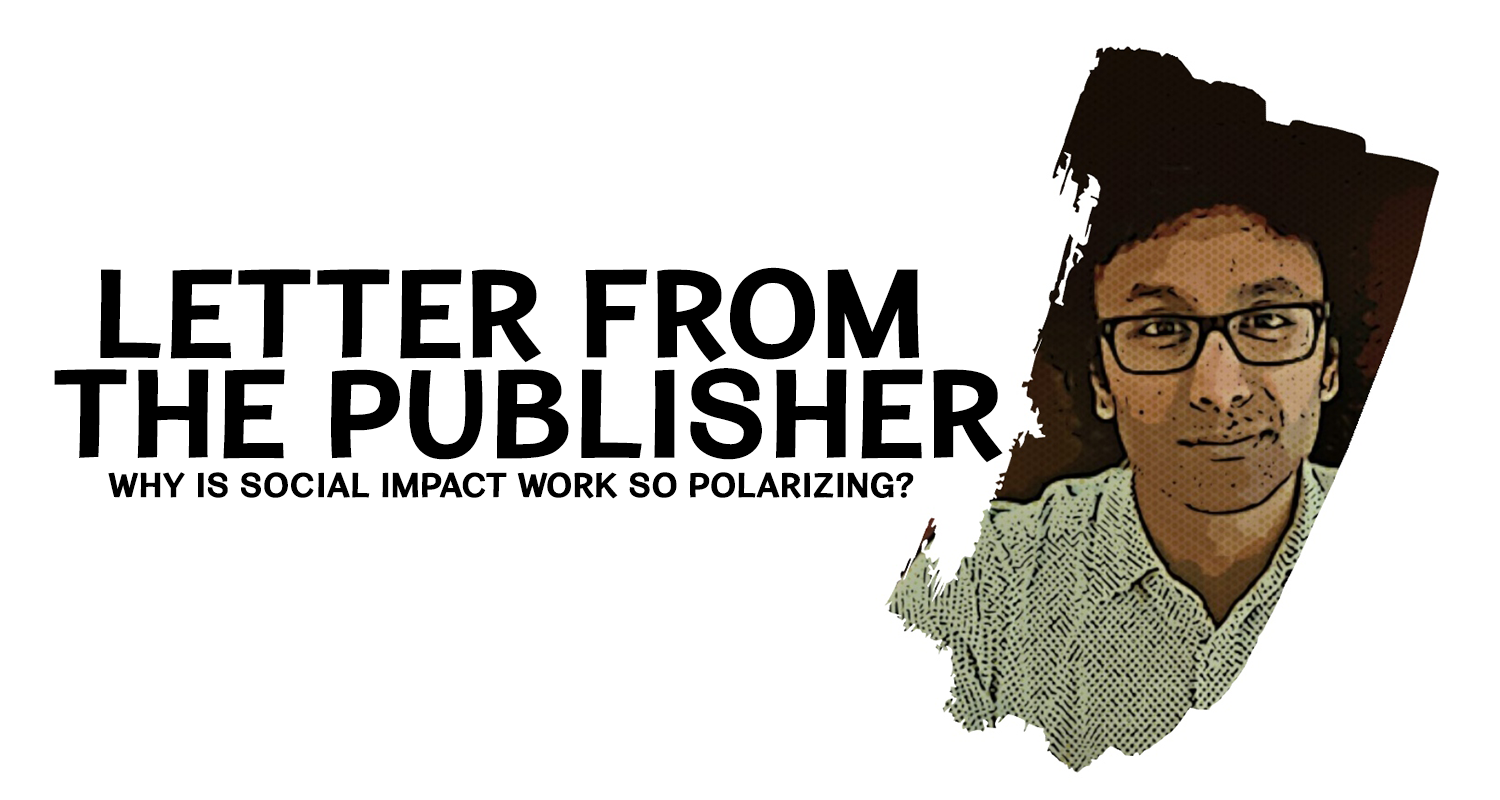Letter from the publisher: Why is social impact work so polarizing?

Tensions are high across Canada. The words ‘energy’, ‘climate’, ‘rule of law’, and ‘land’ have become increasingly polarizing. Who is a protester? Are the pipeline protests illegal? Should people take time off work to protest? How much of these us versus them narratives are perpetuated by the media? These questions are hotly debated. For some, disruptions have cost them their travel, for others, their jobs, and for Indigenous peoples, disruptions are insignificant compared to what they had to endure for over 200 years. Wet’suwet’en hit peak popularity in Google Search this month in Canada. To add to all of this, today’s polarized web reflects and aggravates the tensions present in the country at large.
Not too long ago, I read former Prime Minister Stephen Harper’s book ‘Right Here, Right Now: Politics and Leadership in the Age of Disruption’. Wait — hear me out. I did it because I felt it was important for me to understand how he believes globalization has harmed us and saved us. His thoughts on ‘globalists’ (those who he describes as increasingly having a weak attachment to the nation-state) and ‘localists’ (those who he describes as having a social life connected to a local church, service club, or community group and more likely to be nationalists at heart) opened my eyes to perspectives that I hadn’t thought about. The thing is, we don’t read books written by people with different ideologies enough, but we should.
Society is made up of multiple ideologies and in order to make serious headway on the issues of our time, social impact professionals like you and I have a responsibility to engage people who don’t believe in the same things we do and who don’t see the world the same way we do.
Last week, Edelman Canada CEO Lisa Kimmel presented the Canadian findings of the 20th annual Edelman Trust Barometer to a packed room at the Economic Club of Canada. She shared, “Faced with breakneck technological advances and political turbulence, people around the world are questioning whether society’s long-standing institutions can effectively lead us into the future. Without trust, it becomes difficult to collaborate and take collective action to solve large, pressing problems. Without trust, shared prosperity becomes impossible, widening divides.”
Would you agree?
I spent hours diving into the 2020 Edelman Canada Trust Barometer report. Canadians’ trust in NGOs, government, business, and media, has declined three percentage points from 2019—now at 51 percent. Only 49 percent of Canadians trust the government and only 55 percent trust NGOs. 65 percent of Canadians do not have confidence that societal leaders will be able to successfully address our country’s challenges. And as Kimmel pointed out, low trust creates the perfect conditions for widening divides.
Only 49 percent of Canadians trust the government and only 55 percent trust NGOs.
This is our reality. And it is a deeply troubling one.
The tensions we’re experiencing across Canada this month are symptoms of a deeper problem. And it concerns all of us in social impact. It is one of inclusion.
Community Foundations of Canada’s recent Vital Signs research indicated that as social inclusion improves, we become more resilient in the face of community emergencies, and people give more time and money to support their community when they feel like they belong.
Social impact professionals and entrepreneurs are proponents of more youth, women, people of colour, and Indigenous peoples at the table to address challenges. Generally speaking, we are comfortable with greater inclusion in the world of social impact — except when it comes to one group: the political right.
So, we’re inclusive. But are we inclusive enough?
If we believe we can transition to a sustainable energy future or to a reconciled relationship with Indigenous peoples or address the affordability crisis in communities without including the right, we are kidding ourselves. Ways forward don’t just require multi-sector conversations but also multi-ideology conversations. The more we don’t include those who have different ideologies than we do, the more difficult transitions will be.
We are living in an era of misunderstanding, mistrust, and polarization. We have to re-think inclusion. Navigating messy tensions, ideological viewpoints, and entrenched institutions are critical to creating lasting impact this decade. These are not things the social impact world has been all that comfortable with or been equipped to do well, but the time for us to get uncomfortable has come.
Vinod Rajasekaran
Publisher & CEO
